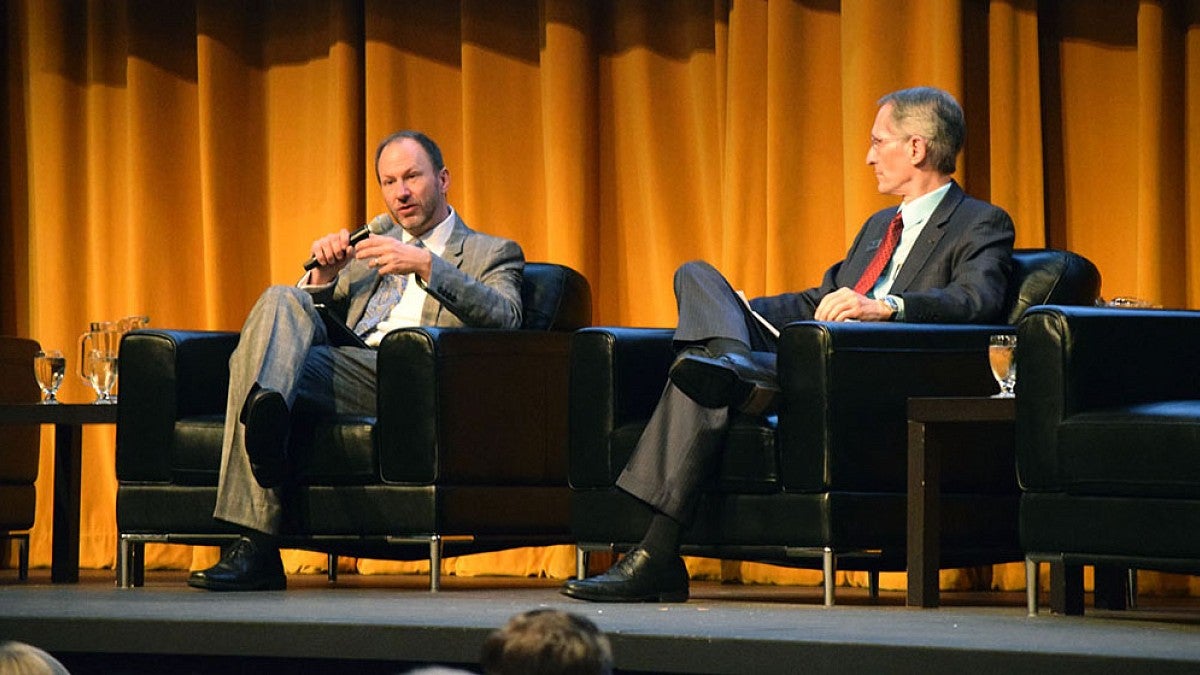While state and national economies are expected to continue to see modest growth, uncertainties around the next presidential administration will temper the speed and reach in the short term, said economic experts at the 13th annual Oregon Economic Forum on Wednesday in Portland.
“This was a bit of a sluggish year for the U.S. economy,” said Tim Duy, director of the Oregon Economic Forum and UO professor of practice in economics. “The sharp slide in oil prices and the sharp rise in the value of the U.S. dollar took the steam out of manufacturing. But the economy continued to grow and push down unemployment below 5 percent. The U.S. economy is fairly close to full employment and we are now seeing wage growth.”
Bruce McCain, chief investment strategist for Key Private Bank, said economic recovery has been difficult coming out of the recession, but it is starting to have a deeper impact.
“It has been an immensely difficult recovery. The economy grew much more slowly than we anticipated it would. It was a difficult environment for business expansion,” he said. “We are reaching a point where things seem to be improving, especially on the labor and wage side, but it remains a very sluggish growth environment.”
The election of Donald Trump as president and a Republican-led Congress will have a far-reaching effect on the U.S. economy.
“Bottom line, the budget outlook is changing, and changing substantially, and changing significantly,” said Stan Collender, the keynote speaker and executive vice president at Qorvis MSLGROUP. “The last couple of years of the Obama administration have been mired in stalemate, deadlock and nothing happening. Fiscal policy was simply unavailable. Not because of policy but political deadlock.”
Collender said the economy should see a short-term boost from government spending. “It won’t be as big as we were promised. We should see medium growth over three to four years. Businesses are holding because of the uncertainty. For at least a year, the economy will experience a level of uncertainty that we haven’t see in the last 10 years.”
Patrick Phillips, acting executive director of the UO Phil and Penny Knight Campus for Accelerating Scientific Impact, opened the forum by discussing the long-term economic effect the project will have on the state. During peak construction, the Knight Campus will “directly contribute $99.7 mission in annual economic activity to Oregon’s economy. (It) will support more than 1,300 jobs, contributing nearly $11 million in local and state tax revenue.”
“Over a longer time horizon, UO’s initiative for the Knight Campus will serve as a driver for economic development in the community and region through new innovation and business activity,” Phillips said. “This work will tremendously enhance and grow our state’s innovation economy.”
KeyBank sponsored the event. Other sponsors were the UO College of Arts and Sciences, Portland Business Journal, Portland Business Alliance, and the Port of Portland.
—By Heidi Hiaasen, University Communications


